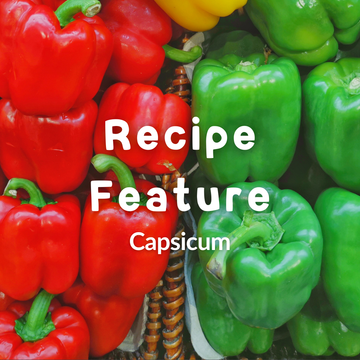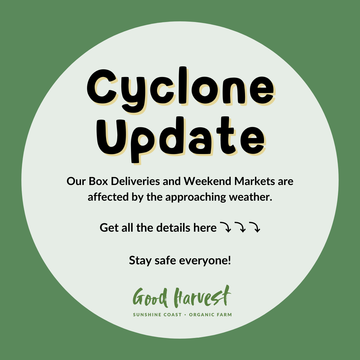The Manmade Monster: A Threat to Our Planet and Our Health
A silent invasion is underway, one that threatens to take over our world. It's not a Godzilla or Frankenstein, but a seemingly harmless material: plastic. This versatile material, made from oil and natural gas, has become an ever-present component of daily modern life. Australia alone uses an astonishing 70 billion pieces of soft plastics every year. That’s almost 3,000 pieces per person! The impact of this addiction is significant.
The Impact on Our Environment
The statistics are overwhelming. According to the Australian National Plastic Plan 2021, every year, 130,000 tonnes of plastic leak into the marine environment causing harm to marine life and ecosystems. An alarming 80% of all plastic waste produced in Australia ends up in our oceans and waterways, contributing to the staggering 8 million tons of plastic waste that enter our oceans globally. This plastic pollution not only contaminates our waterways but also infiltrates our food chain, with plastic particles even found in the fish we eat.
Plastic in Our Bodies
But the problem doesn't stop there; plastic is also invading our own bodies. Research studies have begun finding that microplastics are present in various tissues in the average person, including blood, lungs, skin, brain, and gut. This is a disturbing discovery, as plastics are known endocrine disruptors, which means they can interfere with our reproductive and hormone health. Studies have also linked certain types of plastics to an increased risk of cancer and, more recently, autism. As our understanding of the long-term impacts of plastic exposure continues to grow, it's clear that the consequences of our plastic addiction are far-reaching and problematic.
The Persistent Problem of Plastic
The biggest challenge we face with plastic is that it never, ever goes away. Unlike most other materials, plastic does not biodegrade. Instead, it undergoes a process called photodegradation, where it breaks down into smaller and smaller pieces, but never fully decomposes into simple compounds. This means that all plastic ever made is still present on our planet today, a staggering reality that's difficult to comprehend. As Manya Russo so aptly puts it, "It's an overwhelming thought - that every bit of plastic that was ever created and made it to the ocean, is still here on our earth."
The Packaging Problem
The packaging sector worldwide contributes significantly to plastic waste, accounting for 50% of the world's plastics each year. The reality is plastic packaging currently plays a crucial role in keeping our food clean, fresh, and safe to eat. Plastic packaging also positively helps to reduce food waste by keeping food fresher for longer. Many argue that single-use plastic packaging is necessary for safe food distribution, but as this packaging is a major contributor to plastic pollution, alternatives and more sustainable options are necessary.
Changing Behaviour
Nothing will change unless we, as consumers, take action and change our behaviour. We need to be aware of the impact of our purchasing decisions and make conscious choices about the products we buy and the packaging they come in. While the Australian grocery stores are now charging us for paper bags in place of free plastic ones in their effort to show how “environmentally conscious” they are—the reality is they are selling astronomical amounts of plastic every single day covering the majority of products they sell. And predominantly, these are single-use soft plastics that can't be recycled. Since the sad demise of the Red Cycle program, soft plastics are left without a recycling option, and they're now headed back to the landfill to contaminate our water, soil, and environment.
Need for a Better Solution
The plastic problem clearly needs a better solution. As humans, we've created this monster, and now it's time for us to conquer it. We can't afford to wait for someone else to take action; we must each make changes ourselves. Fortunately, there are innovators like Stephanie, the founder of Raw Bulk Foods Online, who are leading the way.
A Game-Changing Innovation
Stephanie's journey to eliminate single-use plastics was not an easy one. She tested hundreds of different packaging solutions, facing countless dead ends and setbacks along the way. Some packaging failed to preserve freshness, while others resulted in, well, garlic-flavoured cereal (yuck!). It was a true struggle. Her determination paid off, however, and she developed an industry-first closed-cycle packaging solution made from recycled ocean plastics. This revolutionary packaging is designed to be cleaned and reused again and again, keeping food fresh and plastics out of landfills and the ocean.
Our Commitment to Sustainability
At Good Harvest, we genuinely care about our environment and our impact on the world. We're committed to creating a system that's conscientious and intentional, one that doesn't exploit and misuse resources. That's why we've chosen to offer single-use plastic-free organic dry goods using these amazing closed-cycle packages and home compostable bags. By making this change, we're bringing you the extras you’ve asked for, plus enabling you to reduce plastic waste and support sustainable practices that benefit our planet. Together we can make an impact for the health of our planet, our children, and all living creatures.
The Future of Sustainability
Our next Good Harvest sustainability challenge is to find a single-use plastic-free solution for our salad bags that keep the salad fresh. We're committed to innovation and finding creative solutions that work for our customers and the environment. We invite you to join us on this journey, to share your ideas and suggestions, and to be part of a community that's passionate about making a difference.
Together, we can conquer the plastic monster and create a better future for ourselves and future generations.
Written by: Sarah Nicholson
References:
- https://www.cleanup.org.au/soft-plastics-what-has-happened
- https://www.dcceew.gov.au/sites/default/files/documents/national-plastics-plan-2021.pdf
- https://accumulate.com.au/plastic-recycling-statistics-in-australia/
- https://www.earth.com/news/micro-nano-plastic-mnps-found-hiding-deep-inside-the-human-body/
- https://www.smh.com.au/environment/sustainability/the-common-food-packaging-ingredient-linked-to-autism-20240808-p5k0nr.html
- https://wwf.panda.org/wwf_news/?313732/
- https://earth.org/why-we-cant-quit-plastic-waste/




